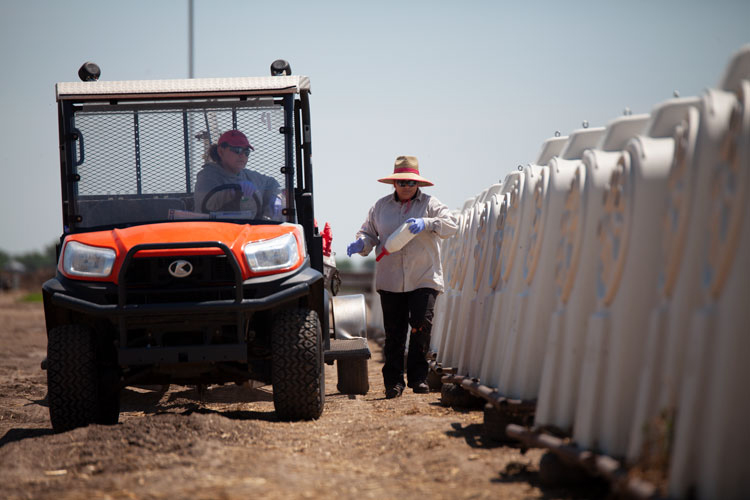
The road to where we are today in agriculture labor laws has been paved with a multitude of good intentions and calls for justice. Many, if not all of them, have been warranted and created better working places.
During the February 3 Hoard’s Dairyman DairyLivestream, the question was posed, “What has motivated the changes in agriculture labor laws?”
“It’s a complex topic,” California dairyman Frank Cardoza summarized. That being said, he and the other webcast guests detailed a few of the leading motivators for change.
The first and most prominent driver of agriculture labor change has been justice and a call for fairness across industries.
“Frankly, they want to move farm labor more into alignment with the rest of the economy under that Fair Labor Standards Act at the federal level,” explained Cornell Extension’s Richard Stup of those advocating on behalf of farm workers. “It’s led by worker advocate groups that have been driving that for years. Now it’s increasingly unions. Unions perceive any part of the population that has a different labor standard as a threat, for example a higher overtime threshold than 40 hours.”
Justice versus economics
At the base of this conversation is a balance between what many in agriculture would like to offer employees and what is economically feasible.
“There’s a cost to that, but when the dairyman gets his or her milk check, it’s not there. We’re always talking about how we can make things better for the public, but somewhere along the way, the dairyman has to get compensated for that as well,” Cardoza shared.
Stup echoed these thoughts but reminded those in agriculture that from the perspective of purely worker rights and justice, finances simply don’t matter.
“From an industry perspective, we also make an economic argument, which you know farmers are running a business and you want to pay your workers and provide benefits, but somehow you have to have the income to support extra costs of those sort of things,” the labor specialist explained. “Something I’ve seen from the worker advocacy side is that they have flat out said that it is strictly a justice issue. Economics don’t matter.”
While the reality is somewhere in the middle, all three DairyLivestream commentators believe that overtime and wage restriction legislation will continue to gain momentum.
“I can completely agree that the key is to drive the conversation, not be driven by it,” said Cornell’s Chris Wolf.
“The industry needs to get ahead of this and make sure we’re doing an excellent job of taking care of employees and making sure people have excellent pay, benefits, and that the atmosphere is good to work in,” echoed Stup. “When we don’t have that, we’re going to have outside groups coming after the industry and trying to initiate these things through law.”
We can already witness industry leadership in this area in the form of the FARM program’s Workforce Development Program. These types of industry led initiatives will become ever more critical as dairies navigate the important waters of labor changes.
An ongoing series of events
The next broadcast will be on Wednesday, February 17, 2021. Each episode is designed for panelists to answer over 30 minutes of audience questions. If you haven’t joined a DairyLivestream broadcast yet, register here. Registering once registers you for all future events.








